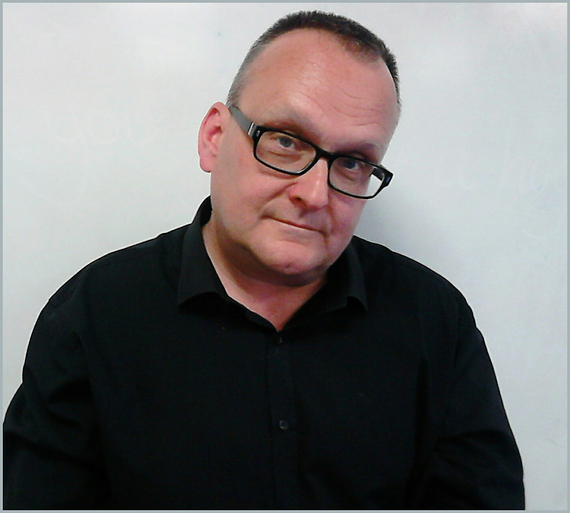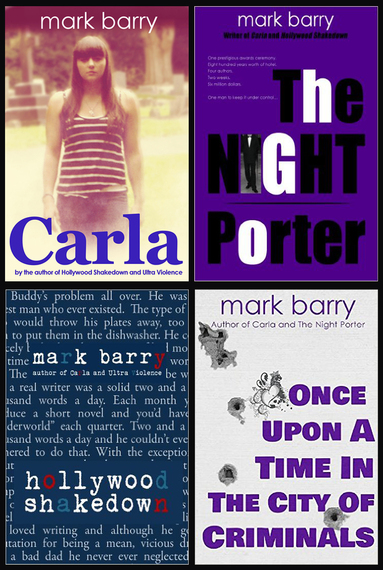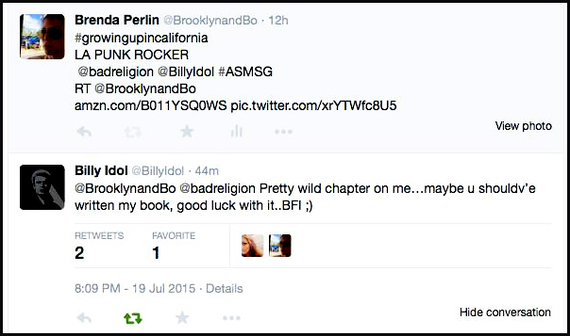Writing is a an enigmatic art form, an alchemy of skill and talent that renders simple words into compelling prose, plot lines that take your breath away; jump-off-the-page dialogue, and characters we'd follow around any corner or shy from in the dark. Books are, quite simply, magic, and despite our cultural predilection to analyze the bejeezus out of anything and everything related to them -- self vs. traditional, print vs. ebook; free vs. sensible prices; men vs. women; Amazon vs. everybody -- when it really comes down to what we all want, it's simple: GOOD BOOKS. And good books are, unarguably, written by GOOD WRITERS.
Of course, what makes a book "good" is clearly subjective (just set E.L. James fans on readers of Donna Tartt), but from this reader's perspective, I don't give a hoot about the race, creed, color, gender, genre, price point, publishing platform, or social media status of an author; all I want is the alchemy, the magic... the good book. Which is why I want to introduce you to a favorite new author of mine, a fellow who's writing exactly those books: Mark Barry.
Certainly he's not new, but I've just come upon his work in the last year. Writing fiction that stands out with its wit and originality, Barry, who's based in Nottingham and Southwell in the UK, has built an impressive library of novels and short stories published through his company, Green Wizard Publishing, stories steeped in his cultural vernacular and sensibilities, biting and wickedly funny. Introduced by a fellow author who felt my own literary sensibilities aligned, I picked up my first of his books, Carla, to be pulled into an alternately tender and shocking story of love between a mentally-ill man and an innocent barmaid, swinging wildly from out-loud laughter to the gut-punch of pain, violence, and heartbreak. Rare to find such humor in so dark a tale... I was hooked.
Next came The Night Porter. A mad piece of fiction that employs Barry's signature wit and irreverence, his attention to detail is so fine-tuned you'll feel as though you know that part of England by the time you're done. The narrative (begging to be made into a Wes Anderson film) covers the angst and antics of a rowdy group of writers gathered for an Academy Award-type event for indie books. With footnotes so rich as to be essential, Barry's titular night porter finds his regimented life shaken to the core by the eclectic and confounding band of characters who demand his time, allegiance, and attention.
The most recent of Barry's books I've read is Once Upon a Time in the City of Criminals, a bracing urban story that shares some of the aching tenderness of Carla, but goes deeper into the dark, following the trajectory of a tough, smalltime hoodlum who is hired to protect a young escort. With its sharp, brittle edges, its unvarnished glimpse into a violent subculture, it may be a rough read for some, but it's replete with Barry's crackling wit and signature mix of humor and pathos, and is, at its heart, a love story.
So now, with three books under my belt, and some correspondence articulating my kudos for his work, it seemed time for some one-on-one with the man himself, an invitation he so graciously accepted:
So, Mark, what's the most original, unique, hardcore thing about you as a writer?
Forty years ago, in the era I most venerate, I would have been quite common as a writer, with my admiration for crime books, pulp, gangster fiction, and such. But now, in the indie, PHP (Post Harry Potter) era, I am definitely unique and one-off, certainly in indie, which can be extremely conservative, concentrating on the commercial and the traditional.
I try new things. Three of my books do not use dialogue tags or speech marks. Ultra Violence, my football novel, is written in second person omniscient. The Night Porter makes use of footnotes. In Carla, the protagonist is a probationer from a mental asylum. No one else is doing this, to my knowledge, and sometimes it pisses people off. I've lost readers and, as a tactic, it doesn't make for massive sales...but it does make for an interesting read!
Nothing disappoints me more than a book that's identical to the last book I read and the one before that, which is an all-too-common experience for readers. Yes, there are people who like the familiar, but for me that's beginning to wear thin. No two books of mine are the same.
What compelled you to write Carla, specifically? A real person? A real experience?
After walking into a pub one night, spotting this simply stunning young girl, and realising immediately that I was utterly (and quite rightly) invisible to her, it struck me that I had become old; that part of my life was all over. I remember feeling incredibly saddened by that, and the idea to write a novel about it followed shortly behind: I wanted to write about a mixed-age love affair. I thought about potential plots, came up with one, rejected another. For me, it wasn't enough to have an everyday chap (like my very good self) as the older male - it simply wasn't interesting enough and it had been done before.
I did have the experience of having been a psychologist back in the day, and, twenty years ago, I taught criminal psychology. That whole subject fascinates me, and so I had the idea of making the older male a mental patient - potentially (but not necessarily) dangerous - which, bearing in mind that Carla is written from his point of view, is interesting. Then it struck me: what if the girl (Carla) was, in fact, attracted to him and he wasn't invisible at all?
It all came together from there, a story inspired by a very beautiful, but completely unattainable barmaid (and I never did find out her name, btw!).
The footnotes in The Night Porter, as mentioned above, are almost a character onto themselves. What inspired the decision to use that device, particularly in a novel?
One of my favourite authors is your countryman, David Foster Wallace, who unfortunately - and tragically - passed away late last decade. He was a prodigious user of footnotes which, for a fiction writer, is certainly an innovation. It's usually in the domain of academia and non-fiction; you don't often see them in fiction. DFW used footnotes for digressions, explanations, histories, lists, stories-within-stories, and internal monologues, thus keeping the body of the narrative clean, sharp and linear.
I was desperate to try this technique out and so, when the idea for The Night Porter came to me, it seemed the ideal opportunity. I also use footnotes in a wry way. Many indie authors will find their novels listed in one of the footnotes, particularly those who appeared on my interview blog, The Wizard's Cauldron, and there are three pages of footnotes listing imaginary books from imaginary authors. I loved writing those.
TNP is a satire of publishing and indie at heart, and these footnotes are an ironic joke. Not entirely popular - and they are not available on the e-version (but the paperback is such a beautiful book, why bother with the e-version!). I would do it again and I have not ruled out a return to footnotes in subsequent books.
Violence and crime play a starring role in your work, certainly in your most recent novel, Once Upon a Time in the City of Criminals, yet you somehow always find the heart and humor within the darkness. Talk a bit about that signature mix.
In Criminals, I was keen to crack jokes and sprinkle the book with black humour. My friend, Georgia Rose, herself a mean writer, says that with Criminals, one minute she found herself laughing, the next, crying.
That's pretty much what I aim for! I started out as a comedy writer (particularly with sketches about relationships) and my first audiences were predominantly female. And yes, while I enjoy a good punch-up in my fiction, I enjoy cracking jokes and, in particular, exploring the complex interactions between men and women, a lot lot more.
Frankly, I've been stunned by the ferocity of the violence in certain books -- needed a shower after some, to be honest. I believe you have to throw something light into the mix to make it palatable.
If you could change one thing about the independent publishing world, what would it be?
One thing? Ummm. Nope - can't do it! So let's get radical: I'd limit the amount of books people can publish on Amazon in one calendar year. I'd completely ban novellas of less than 30,000 words, introduce some form of selection, and I would start a crowdfund to pay for five freelance sales reps to approach bookshops to persuade them to carry Independent paperbacks.
Bookshops: That's the old/new frontier. The day I get my books in bookshops will be the day I've succeeded -- it is simply too difficult now for me to continue using the Blog 101-recommended methods of Twitter, Facebook, and Book Bloggers, etc. The market is drenched with books, the review system is extremely dodgy, and everyone, talented or not, is fulfilling their I-Can-Write-Better-Than-That ideations. And fair play to them, but, in a lot of cases, they discover they cannot, yet still publish anyway.
In any case, evidence suggests readers are returning to the shops and that's where writers need to be.
Lastly, you're involved in a great literary organization, Brilliant Books; tell us a bit about that.
BB is something my friend, Phil Pidluznyj, and I started a year and a half ago. Funded by the British Big Lottery Fund, we take role models into schools - success stories from industry and commerce, sports and the arts - and get them to address and enthuse reluctant readers (of which there are many). Then, over eight weeks, we encourage the kids to write short stories and we publish the outcomes in an anthology that they keep forever. It's been a roaring success so far - we even had the British Shadow Chancellor acting as a host. If you'd like to read a bit more about it, I've written a post about the group at Ali Levett's A Woman's Wisdom book blog.
So, there you have it: a snapshot of the prolific Mr. Barry: a good (excellent) author writing good (excellent) books. Visit his page, enjoy his work, and, frankly, don't just take my word for it:
In the just-released LA Punk Rocker, an anthology produced by indie firecracker, Brenda Perlin, Barry contributed a short story on Billy Idol. With the book out only one day, the man himself Tweeted a "review" of Barry's story:
Testimonials don't get much better than that!
Photos by permission of Mark Barry.
Tweet image by permission of Brenda Perlin.
___________________________________________________________
Follow Lorraine Devon Wilke on Facebook, Twitter, Instagram, and Rock+Paper+Music. Access details and links to her other work at www.lorrainedevonwilke.com, and her novels, AFTER THE SUCKER PUNCH and HYSTERICAL LOVE at her author pages at both @ Amazon and Smashwords. Watch her book trailer for AFTER THE SUCKER PUNCH here, and be sure to follow her adventures in independent publishing at her book blog, AfterTheSuckerPunch.com.
______________________________



